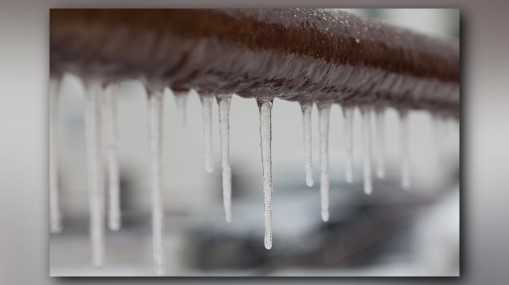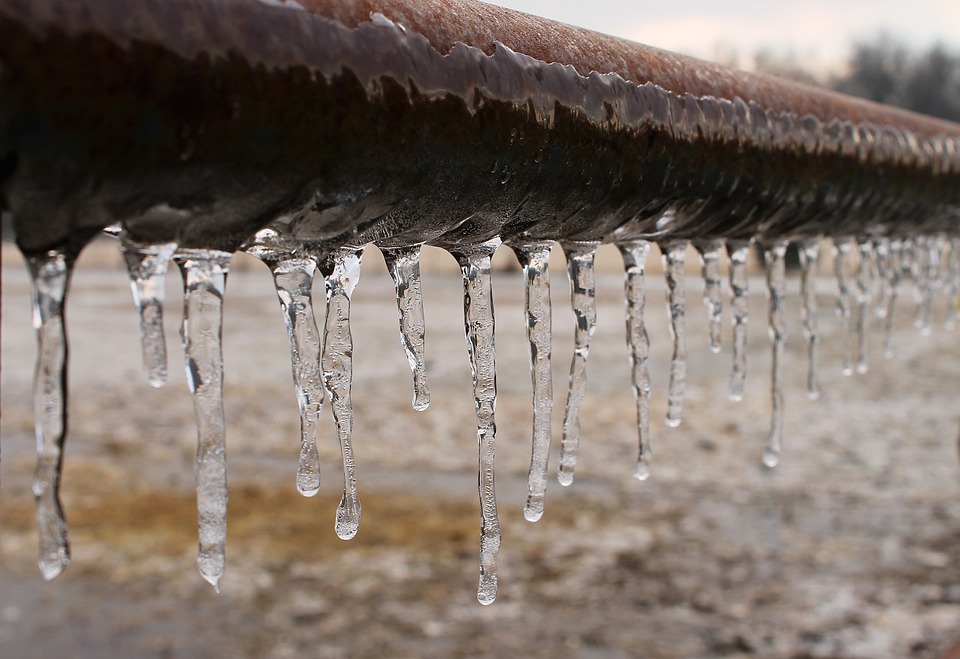Here on the next paragraphs you will discover lots of awesome insights regarding 6 Ways to Prevent Frozen Pipes.

Winter can ruin your pipes, especially by freezing pipelines. Right here's just how to stop it from occurring and what to do if it does.
Intro
As temperatures drop, the danger of frozen pipes rises, possibly causing expensive repair work and water damage. Understanding just how to avoid frozen pipes is essential for homeowners in chilly climates.
Avoidance Tips
Protecting susceptible pipes
Wrap pipelines in insulation sleeves or use heat tape to shield them from freezing temperatures. Focus on pipelines in unheated or external areas of the home.
Home heating methods
Maintain interior rooms effectively warmed, particularly locations with plumbing. Open cupboard doors to permit cozy air to flow around pipelines under sinks.
How to recognize frozen pipes
Try to find lowered water circulation from faucets, uncommon smells or noises from pipelines, and noticeable frost on subjected pipes.
Long-Term Solutions
Architectural changes
Take into consideration rerouting pipelines far from exterior walls or unheated locations. Add added insulation to attics, cellars, and crawl spaces.
Upgrading insulation
Purchase high-grade insulation for pipes, attic rooms, and wall surfaces. Appropriate insulation helps keep consistent temperature levels and lowers the risk of frozen pipelines.
Shielding Outside Plumbing
Yard tubes and outside faucets
Disconnect and drain garden tubes before winter months. Install frost-proof spigots or cover outside faucets with protected caps.
Recognizing Icy Pipelines
What causes pipes to freeze?
Pipes ice up when subjected to temperature levels below 32 ° F (0 ° C) for prolonged durations. As water inside the pipes ices up, it broadens, taxing the pipe walls and possibly creating them to burst.
Risks and damages
Frozen pipes can lead to water disruptions, building damages, and pricey repairs. Burst pipes can flooding homes and trigger substantial architectural damages.
Indicators of Frozen Piping
Identifying icy pipelines early can stop them from rupturing.
What to Do If Your Pipes Freeze
Immediate actions to take
If you suspect frozen pipelines, maintain faucets open to alleviate pressure as the ice thaws. Use a hairdryer or towels taken in warm water to thaw pipes gradually.
Conclusion
Stopping frozen pipelines requires proactive steps and fast reactions. By recognizing the causes, indications, and safety nets, property owners can shield their plumbing during winter.
Helpful Tips to Prevent Frozen Pipes this Winter
UNDERSTANDING THE BASICS: WHY PIPES FREEZE AND WHY IT’S A PROBLEM
Water freezing inside pipes is common during the winter months, but understanding why pipes freeze, and the potential problems it can cause is crucial in preventing such incidents. This section will delve into the basics of why pipes freeze and the associated problems that may arise.
THE SCIENCE BEHIND FROZEN PIPES
When water reaches freezing temperatures, it undergoes a physical transformation and solidifies into ice. This expansion of water as it freezes is the primary reason pipes can burst. As the water inside the pipe freezes, it expands, creating immense pressure on the walls. If the pressure becomes too great, the pipe can crack or rupture, leading to leaks and water damage.
FACTORS THAT CONTRIBUTE TO PIPE FREEZING
- Low Temperatures: Extremely cold weather, especially below freezing, increases the risk of pipes freezing.
- Uninsulated or Poorly Insulated Pipes: Pipes located in unheated areas, such as basements, crawl spaces, or attics, are more prone to freezing. Insufficient insulation or lack of insulation altogether exacerbates the problem.
- Exterior Wall Exposure: Pipes running along exterior walls are susceptible to freezing as they encounter colder temperatures outside.
- Lack of Heating or Temperature Regulation: Inadequate heating or inconsistent temperature control in your home can contribute to frozen pipes.
PROBLEMS CAUSED BY FROZEN PIPES
WHY CERTAIN PIPES ARE MORE PRONE TO FREEZING
- Pipe Bursting: As mentioned earlier, the expansion of water as it freezes can cause pipes to burst, resulting in significant water damage.
- Water Damage: When pipes burst, it can lead to flooding and water damage to your property, including walls, ceilings, flooring, and personal belongings.
- Structural Damage: Prolonged exposure to water from burst pipes can compromise the structural integrity of your home, leading to costly repairs.
- Mold and Mildew Growth: Excess moisture from water damage can create a favorable environment for mold and mildew growth, posing health risks to occupants.
- Disrupted Water Supply: Frozen pipes can also result in a complete or partial loss of water supply until the issue is resolved.
https://busybusy.com/blog/helpful-tips-to-prevent-frozen-pipes-this-winter/
- Location: Pipes located in unheated or poorly insulated areas, such as basements, crawl spaces, attics, or exterior walls, are at higher risk of freezing.
- Exterior Pipes: Outdoor pipes, such as those used for irrigation or exposed plumbing, are particularly vulnerable to freezing as they are directly exposed to the elements.
- Supply Lines: Pipes that carry water from the main water supply into your home, including the main water line, are critical to protect as freezing in these lines can affect your entire plumbing system.
- Underground Pipes: Pipes buried underground, such as those connected to sprinkler systems or outdoor faucets, can be susceptible to freezing if not properly insulated.

I was guided to that report on Helpful Tips to Prevent Frozen Pipes this Winter from a friend on our other web page. If you please take a moment to distribute this page if you enjoyed reading it. Thanks for your time. Come back soon.
Call Today
Comments on “Tips to Keep Your Pipes from Cold Weather Issues: Crucial Advice”